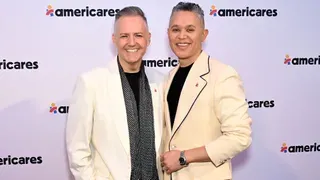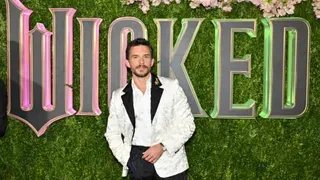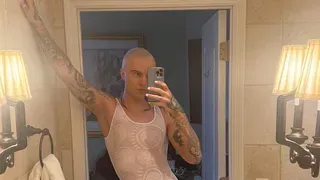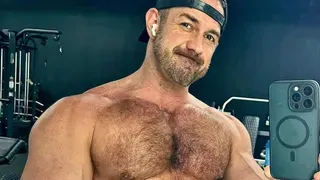January 27, 2015
LGBT Sport :: Out Across the Land and Here at Home
Kilian Melloy READ TIME: 5 MIN.
If you are interested in participating in a "group activity," the LGBT community offers many options -- some healthy, some perhaps not as much. An endless array of bars and nightclubs are available and can be a den for alcohol-fueled fun and ferocity. Populated with the requisite selection of hot, delicious men and women from which to choose, and connect, we tend to congregate there looking for community. Though, often times, participation in that particular part of the "lush life" can be just that - lush and sometimes painfully overly-indulgent.
Another chance to "connect" orbits around our mobile phones. Offerings within include a more than healthy selection of online apps to choose from, pretty much specific to any taste you might have. Bears, otters, boys, bi, leather, hard-core or soft, it's all out there and one can certainly have a whole lot of fun, playing in that particular virtual zoo. They are all choices that almost guarantee a quick touchdown, though typically, do not allow for a lengthy game.
Connection is born out of familiarity, a constancy that comes from spending regulated time with a group of people. Team sport and exercise groups can be one of those places, which offers that type of bonding experience. Whether you run, row, stroke, strike, hike, bike, shush, swoosh, dunk, spelunk, swim, spin, dance or even cheer, there are abundant resources for you to get your "sweat on" and connect with members of the LGBT community through team sports. Try it, you might find that "joining in" is the perfect medicine for redefining what it means to participate and connect. In the process, you might feel better about yourself by getting in shape... and during the process, even have some fun!
There is a long list of reasons to get involved in the LGBT sports world; the camaraderie, fitness, connection and a sense of belonging to something bigger. If you're feeling fearful and need some inspiration, take a look at this list of "early to the game" proud LGBT sports heroes and feel emboldened by their ferocity, "outside of the closet."
LGBT HEROES: THE FIRST STEPS OUTSIDE THE CLOSET
BILL TILDEN:
Truly one of the first out professional players-in 1920-no less. This tennis star went on to win the men's singles title at Wimbledon. Tilden topped that by winning two more Wimbledon titles, seven U.S. championships and led U.S.
teams to seven Davis Cup victories.
TOM WADDELL:
Openly gay, this physician placed sixth in the 1968 Olympic decathlon. He and partner Charles Deaton were the first gay couple to be featured in People magazine and he went on to plan the first Gay Olympic Games.
DAVID KOPAY:
This NFL running back played from 1964-72 for San Francisco, Detroit, Washington, New Orleans and Green Bay and was the first professional team-sport athlete to come out.
JOHN CURRY:
A 1976 Olympic and World Champion figure skater, he was outed by the German tabloid newspaper, Bild-Zeitung. Curry was diagnosed with AIDS in 1987, openly discussing it and his sexuality with the press, later passing at the age of 44 in 1991.
BILLIE JEAN KING:
This tennis star's 1981 outing was not chosen, coming about due to the "palimony" lawsuit from her former lover. King however, has gone on to be a powerful symbol for the LGBT community.
MARTINA NAVRATILOVA:
Also taking place in 1981, her outing was by choice. Coming out publicly as bisexual during an interview with the New York Daily News.
BOB PARIS:
Winner of a multitude of titles, including Mr. Olympia culminating with Mr. Universe (1983) bodybuilding titles, Paris came out in Ironman magazine in 1989, and wed his partner Rod Jackson that same year.
BRUCE HAYES:
A gold medal winner at the 1984 Los Angeles Olympic games, Hayes later reveals his sexuality at the 1990 Gay Games, winning seven gold medals.
ED GALLAGHER:
It took surviving a 1985 suicide attempt for Gallagher to reconcile his sexuality. The act left him a paraplegic, though he is quoted as saying,"I was more emotionally paralyzed then, than I am physically now."
JUSTIN FASHANU:
The first English athlete to come out during his career, this troubled British soccer player commits suicide at 36, amid sexual assault charges with an American teenager and in fear of an unfair trial due to his sexuality.
RENEE RICHARDS:
She made her transition in 1975 and was banned from playing tennis in the U.S. Open. She took it to the New York Supreme Court and in 1977 they ruled in her favor.
ROY SIMMONS:
This offensive guard played from 1979-83 for two NFL teams, the New York Giants and the Washington Redskins. Simmons chose to out himself nationally on The Phil Donahue Show.
GLENN BURKE:
A Major League player for the Los Angeles Dodgers and Oakland Athletics from 1976 to 1979, Burke was the first to come out to his teammates and owners while still playing. It is suggested that he and teammate Dusty Baker are credited with inventing the"high 5." He died of AIDS-related complications in 1995.
GREG LOUGANIS:
Four-time gold medalist at both the 1984 and 1988 Olympic games, Louganis' sexuality was known by most. He came out publicly at the 1994 Gay Games with these words: "Welcome to the Gay Games, it's great to be out
and proud."
MISSY GLOVE:
Openly lesbian, she wins her first professional mountain biking title in 1994 and goes on to win multiple awards, becoming one of the most successful bikers in history.
IAN ROBERTS:
In 1995, he becomes the first rugby player in the world to come out publicly. Arguably one of the sport's most popular players, his success continues both
professionally and personally.
RUDY GALINDO:
He becomes the first openly gay skating champion in the U.S. when he comes out in 1996 in Christine Brennan's book "Inside Edge: A Revealing Journey Into the Secret World of Figure Skating."
THE LIST GROWS...
Since the brave early steps of those previously mentioned, there have been many that have followed. Breaking down barriers and lending their support, by living outside of the closet. This list, while impressive, is incomplete, sadly due to space limitations. Happily though, because the list continues to grow...
Jason Collins - Collins played with the Boston Celtics and the Washington Wizards in the National Basketball Association's 2012-2013 season, becoming the first male professional athlete in the United States to come out.
Orlando Cruz - This featherweight boxer said in a USA Today article, "I have and will always be a proud Puerto Rican. I have always been and always will be a proud gay man."
Megan Rapinoe - This Olympic soccer player said this in an Out magazine interview, "In female sports, if you're gay, most likely your team knows it pretty quickly. It's very open and widely supported. For males, it's not that way at all. It's sad."
Kwame Harris - Former NFL player for the San Francisco 49ers, his coming out was precipitated by comments from a teammate. "It's
surprising that in 2013, Chris Culliver would use his 15 minutes to spread vitriol and hate. I recognize that these are comments that he may come to regret and that he may come to see that gay people are not so different than straight people."
John Amaechi - Former Penn State, NBA player, later identified himself as gay in his book, "Man In The Middle." Look for our interview in The Rage Monthly's April 2012 online issue.
Gareth Thomas - Came out while still actively playing rugby and said this in The Guardian."I'd love for it, in 10 years' time, not to even be an issue in sport, and for people to say...'So what?' "
Matthew Mitcham - He outed himself during an interview with The Sydney Morning Herald at the ripe age of 20. Another interviewee of The Rage Monthly, you can see our chat online with this 2008 Olympic diver in our January 2013 issue.
Kilian Melloy serves as EDGE Media Network's Associate Arts Editor and Staff Contributor. His professional memberships include the National Lesbian & Gay Journalists Association, the Boston Online Film Critics Association, The Gay and Lesbian Entertainment Critics Association, and the Boston Theater Critics Association's Elliot Norton Awards Committee.
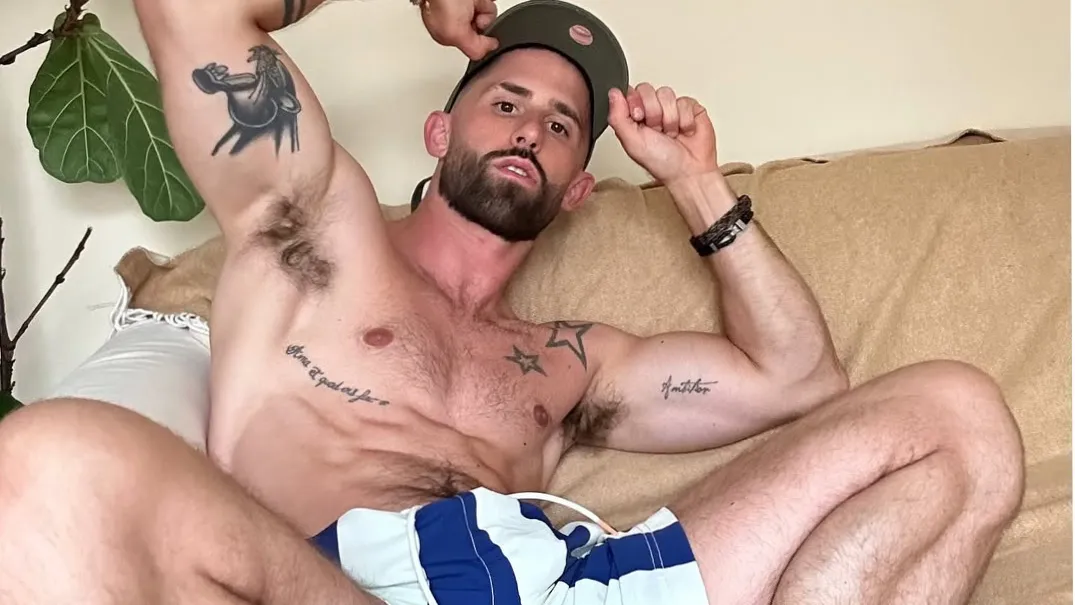
 Copyright Rage Monthly. For more articles from Rage visit
Copyright Rage Monthly. For more articles from Rage visit 
